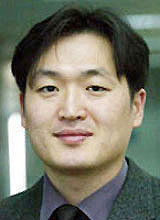‘You should not let people go just because you face difficulties’
‘You should not let people go just because you face difficulties’
Posted March. 30, 2020 07:43,
Updated March. 30, 2020 07:43

It has been a few years since Y stopped contacting with our high school alumni including me. The reason was that he borrowed some money for living from some of his friends. The amount was not significant and the lenders could have forgotten about it, but the borrower must have gone into hiding due to a sense of guilt arising from his inability to repay the debt. Sometimes I would think what it would have been if Y had not taken a year off from school to study abroad. If so, he might not have lost his way in the cutthroat job market after graduating from college the year after the onset of the 1997 Asian financial crisisa. He might not have been in a situation where he had to mobilize his parent’s money to open his own business after failing to land a job. He might not have faced a situation where he was not even entitled to submit job applications when resuming efforts to land a job after closing his business. He might not have had to frequently switch jobs in search of better working conditions due to lack of professional experience, and faced more difficulties landing a job and making ends meet in the wake of the global financial crisis.
Y just lived in the wrong time. There would be diverse troubles and hardships faced by all different generations, but there are numerous Ys especially among people in their 40s and 50s who began their careers in times of a crisis. Some say that mobility between different social classes has been broken, but when a crisis hits even the very basic railing that helps maintain one’s social class collapses. People in their 40s have already become the age group who has lost jobs more than any other groups since last year. Once they are pushed out, they continuously remain marginalized as outsiders, and their scars are passed on to the next generation, as demonstrated through the two previous crises.
As Israeli historian Yuval Harari said, this crisis caused by the novel coronavirus called COVID-19 could be the biggest one our generation has ever experienced, and untested and even dangerous emergency measures will become a new standard after the end of the storm and create a whole new world. After the Asian financial crisis, the boundary of competition among Asian companies, either voluntarily or unwillingly, expanded from individual countries to the world, and the employment types of workers diversified to include various non-regular workers. Watchers say after the COVID-19 pandemic, working from home could be adopted en masse in the industrial sector, while in the education field, distance learning, which omits non-curricular experience that should be learned through experience in the school community, could be adopted. This kind of “untact business experiment” can serve as a spark that could induce and expedite new advancements after the crisis, but it also gives us the impression and concern that it may be another name for an experiment that will reduce labor demand.
The job market needs to be more flexible, new technologies have to be introduced faster, and companies should be more competitive. For this to happen, efforts to increase the acceptability of our society should be made first. It is the same reason that a patient who is physically too weak cannot be placed on the operating table for surgery. “You should not let people go just because your company faces difficulties,” then LG Group Chairman Koo Bon-moo told LG affiliates during the 2008 financial crisis. “Only then, when a growth opportunity comes to your company later, you will not miss it. We members are the center of all changes and innovations.” At the time, these remarks were great words of comfort to a Korean society where the fear of unemployment was prevalent. If you remove the grammar of a corporate executive from Chairman Koo's remarks, they are interpreted as suggesting duties and responsibilities as a member of our community.
The current crisis will also haunt us to seek a prey like Y. It is a time when every one of us pooled wisdom and strength to help save our community, just as Chairman Koo did. Companies are advised to keep their employees to the extent possible, and workers are expected to give up some of their rights and privileges to make it possible to hire others. In a situation like this, the government should also ease corporate and labor regulations. Even if the government does not want to for good, it should ease it at least temporarily. It is not a time that the government’s financial stimulus package will be sufficient to help overcome the crisis. Samsung and Hyundai Motor will start or resume hiring new recruits through open competition. We are so glad and grateful. As these efforts and participation further expand, it is hoped that people will not collapse hopelessly and defenselessly this time, unlike in the two previous crises.
koh@donga.com







